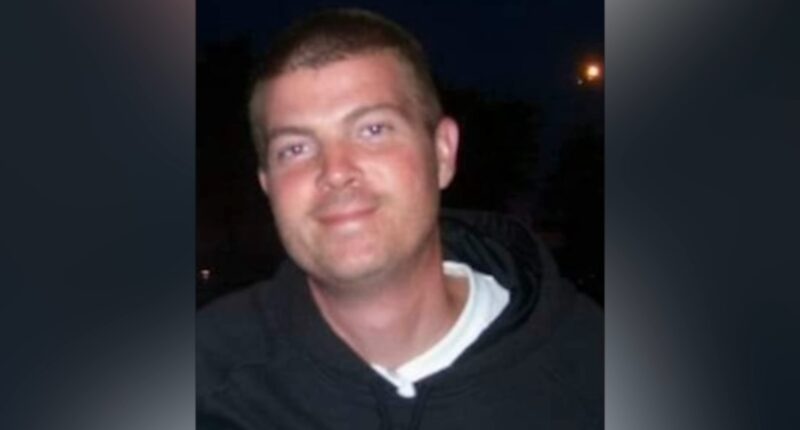CHICAGO (WLS) — It has been more than a decade since a horrific criminal case known as the “Nightmare on Hickory Street” terrorized a Chicago suburb and resulted in two vicious murders.
Now, the ABC7 I-Team has learned that that the person responsible for that first deadly nightmare long ago is allegedly behind a new one, this time in an Illinois state prison, leaving his cellmate dead and questions about how the two of them ended up in the same lockup.
ABC7 Chicago is now streaming 24/7. Click here to watch
The latest dead man is a Chicagoan man sent to prison after violating the terms of his work-release program by failing a drug test. His nightmare started when he was housed with a convicted murderer.
That deadly pairing is now the focus of state and county investigations and the victim’s family has turned to the I-Team in their search for answers.
Andrew Ortega, 44, was discovered in his Western Illinois Correctional Center cell on the morning of Aug. 26, 2024.
Brown County sheriff and coroner Justin Oliver would later determine Ortega had been strangled overnight, with an “undershirt/tank top arm strap tightly around [his] neck as a ligature.”
The coroner ruled Ortega’s manner of death was homicide.
The I-Team has learned Ortega’s cell mate at the time of his death was Joshua Miner, the convicted ringleader of a group that in 2013 lured and killed two men in Joliet.
The crime was labeled the “Nightmare on Hickory Street” because of where it occurred.
More than three months after Ortega’s homicide at the Western Illinois Correctional Center in downstate Mt. Sterling, no arrests have been made and no criminal charges have been filed.
In response to the I-Team’s inquiries about the case, the Illinois Department of Corrections said it has recently concluded its investigation, and has turned the case over to prosecutors for review.
“My son wasn’t given the death penalty, but that’s what he got,” said Janet Ortega, Andrew’s mother.

Family photo of Andrew A. Ortega.
Growing up in the Chicago area, Janet says her adopted son Andrew was a “social butterfly” who got along with everyone.
But Andrew also had a life of challenges, battling depression, substance abuse and past convictions.
When Andrew’s teenage son died in 2018 from an overdose, Janet said her son “lost it” and turned to drugs.
In 2019, court records show Andrew pleaded guilty in Mclean County after stealing a credit card from a parked car. He was sentenced to county jail time and probation.
But in the years that followed, court records show failed drug tests, missed court appearances, and other work-release program violations eventually landed him in state custody at the Western Illinois Correctional Center in early 2024.
Eventually, Andrew told his family he was housed in the same cell as Miner, a convicted murderer.
“They placed him in a cell with who they call the ‘Hickory Street murderer’ from Joliet,” Janet said, referring to Miner.
In 2013, Miner and three others were accused of luring two men — 22-year-old friends Eric Glover and Terrance Rankins — into a Joliet home.
Glover and Rankins were robbed, strangled, and Miner desecrated their bodies, according to investigators. When police eventually entered the home, investigators said they observed a “party-like atmosphere” amongst the victims’ bodies.
“Nobody in the world should have to lose their child like this,” Bobby Jones, stepfather to one of the victims told ABC 7 in 2013. “What they did is unthinkable.”
Miner was convicted and given a life-sentence, not eligible for parole.

Joshua Miner was sentenced to life in prison after he was convicted for the 2013 Joliet murders. Credit: IDOC mugshots.
When Andrew Ortega told his family earlier this year that Miner was his new cellmate, he assured them that he had requested a cell transfer. Prison officials tell the I-Team that, “Upon review, we did not locate any record of Mr. Ortega submitting a request for a cell transfer.”
Prior to his death, Janet said her son Andrew shared with her a now ominous fear.
“He said, you know, ‘It’s okay, mom… the only time I have a concern is when I’m sleeping,'” Janet recalled.
Those concerns became reality this past summer on Aug. 26.
Brown County Coroner records obtained by the I-Team show at 7:17 a.m., Western Illinois Correctional guards discovered Ortega’s body in his cell, and called 911.
Coroner Justin Oliver confirmed he has ruled the manner of death as homicide, but he told the I-Team he couldn’t comment any further given the pending investigation by the Illinois Department of Corrections (IDOC) and Illinois State Police.
A spokesperson for the Illinois State Police told the I-Team it was only called to assist with processing the crime scene, and that the IDOC is the leading investigating agency on the case.
For months, the IDOC has denied the I-Team’s Freedom of Information Act requests for records related to the death investigation, as well as any records about Ortega’s imprisonment, and whether Ortega made any formal requests to be transferred to a new cell.
Shortly after Ortega’s death, prison records show Miner was transferred to another state prison, the maximum-security Menard Correctional Center down south.
A spokesperson for the IDOC declined the I-Team’s requests to interview the warden of the Western Illinois Correctional Center or the IDOC director for this story.
In a statement provided on Dec. 10, IDOC spokesperson Naomi Puzzello said, “The Illinois Department of Corrections (IDOC) conducted a thorough investigation into the death of Mr. Ortega and forwarded its findings to the Brown County State’s Attorney for criminal prosecution.”
Brown County State’s Attorney Michael Hill told the I-Team he has received a portion of the IDOC’s reports, but is still reviewing the case.
Miner did not respond to I-Team messages sent to him via the prison’s messaging network, nor did a public defender who represented Miner in the past.
There are no known state policies preventing violent offenders from being housed with non-violent offenders, as occurred in this case, state experts told the I-Team.
Puzzello told the I-Team the, “IDOC adheres to its Administrative Directive governing the classification and placement of individuals in custody, which is designed to uphold the safety and security of everyone within our facilities.”
Jennifer Vollen-Katz is the executive director of the John Howard Association, an independent prison oversight agency that has been operating in Illinois for more than 100 years.
“At the end of the day, when someone is put into state custody, the state is responsible for their health and safety,” Vollen-Katz said. “While the standard of care IDOC is held to is a minimum constitutional threshold, and compliance with this is abysmally low… the question is did IDOC fulfill its legal obligation to keep someone safe?”
“Western has long been a facility that is deeply troubled,” Vollen-Katz told the I-Team. “It is a place where the people who are incarcerated routinely communicate to us that they fear for their safety.”
Vollen-Katz said that Ortega’s death not only raises serious questions around prisoner safety, but also the investigative process into what happened.
“The Illinois Department of Corrections is investigating the Illinois Department of Corrections in this situation,” Vollen-Katz said. “Anyone who’s not concerned about that, I think, has a very naive view of how an investigation is supposed to run.”
“It lacks integrity, it lacks transparency, and it’s hugely problematic,” Vollen-Katz said.
Ortega’s death is not the only investigation at Western Illinois Correctional Center where there are limited answers months or years after they occurred.
Under “The Illinois Reporting of Deaths in Custody Act,” state and county prisons are required to report in-custody deaths to the Illinois Criminal Justice Information Authority (ICJIA), and that agency releases the information to the public.
ICJIA records show there have been four in-custody deaths at Western Illinois Correctional Center since 2020 where prison officials have not determined or disclosed the manner of death, based on a “pending investigation.”
These cases include an in-custody death on Nov. 26, 2020, when an inmate died from “ligature strangulation,” and another death on Oct. 10, 2023, where staff had allegedly provided an inmate experiencing trouble breathing with two inhalers, but the person eventually died.
The IDOC did not respond to the I-Team’s questions about these previous deaths at Western Illinois Correctional Center.
As of Dec. 16, Andrew Ortega’s death from August is still not included in the public in-custody death reports.

Janet Ortega, mother of Andrew Ortega, meeting with the I-Team at the Lemont United Methodist church where her son Andrew was baptized as a child.
At the Lemont church where Andrew Ortega was baptized as a child, his mother Janet met with the I-Team and said she’ll never stop searching for answers.
If still alive today, Janet said her son would be preparing for his release from prison early next year.
“Now that he doesn’t have a voice, I intend to have one,” Janet said. “I am determined to find out what happened to my son.”
Copyright © 2024 WLS-TV. All Rights Reserved.

















